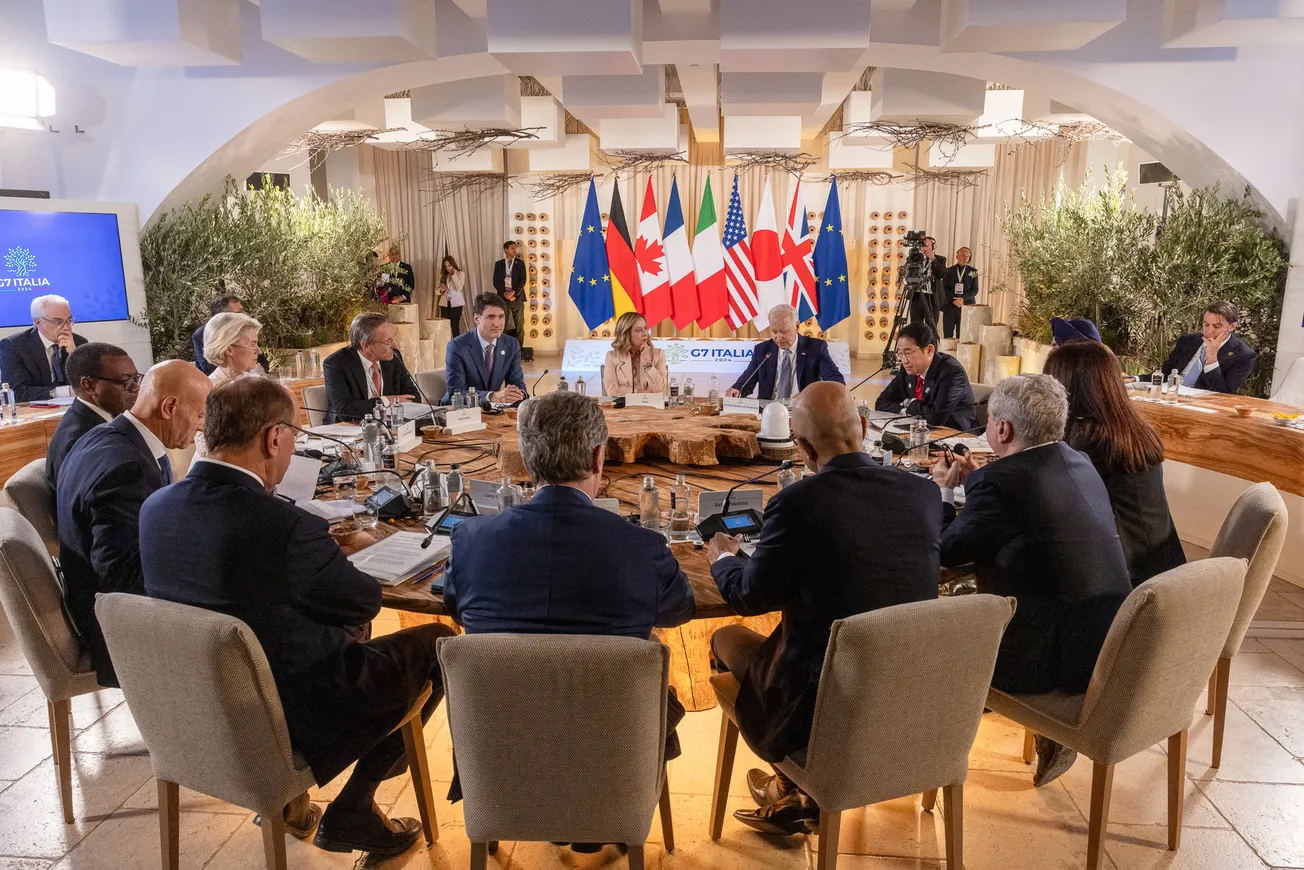The Group of Seven heads of state on June 14 released their “Apulia G7 Leaders’ Communiqué,” a 36-page document, led off by their commitment to continue to back Ukraine for indefinite war against Russia. In the course of diverse points, the Communiqué contains a commitment for the G7 nations to exert control over public opinion, for the purpose of opposing Russia, and for any other goal of their choosing, especially in elections.
The code phrase the G7 uses for control over public opinion is countering “FIMI,” or “Foreign Information Manipulation and Interference.” Here is the relevant G7 Communiqué text titled “Safeguarding Democratic Processes”:
“In a year during which millions worldwide choose their leaders and representatives, we reaffirm our commitment to safeguard democratic values and human rights. With the rapid evolution of emerging technology, we are more concerned than ever about Foreign Information Manipulation and Interference (FIMI) in our democratic institutions and processes, and how attempted interference campaigns, malicious cyber activities, and transnational repression collectively undermine sovereignty and democratic values.
“We pledge to strengthen our coordinated efforts to better prevent, detect, and respond to FIMI threats through human rights-respecting practices and by supporting freedom of expression and free, independent, and pluralistic media. We ask our relevant Ministers to bolster the G7 Rapid Response Mechanism by creating by the end of the year a collective response framework to counter foreign threats to democracies, including publicly exposing foreign operations of information manipulation. We also call on tech companies, in particular social media platforms, to intensify their efforts to prevent and counter FIMI campaigns and the potential abuse of AI for this purpose and work towards higher standards of transparency and accountability on these issues.
“We will continue our cooperation with governments and non-governmental partners to work towards the promotion of fact-based, quality, and trustworthy information and will support relevant international initiatives, in particular in the UN and OECD.”


